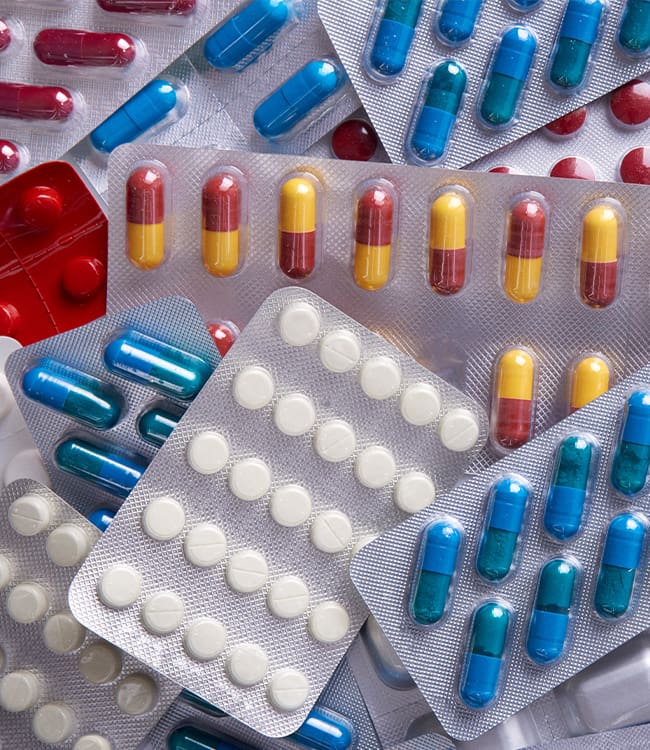Did you know that…
- … 70% of the oxygen we breathe in comes from our oceans?
- … 30% of carbon dioxide produced by humans is absorbed by our oceans?
- … 3 billion people worldwide depend on our oceans as their primary source of protein?
Oceans are not only the lungs of our planet, but they also provide a huge quantity of food, are the source of the world’s rain and freshwater, the highways of international trade, and loved by many people for the natural and recreational opportunities they provide. Indeed, the health of our oceans is immediately tied to our wellbeing and economy. Yet, they are too often polluted and over-exploited.
Since 2008, the United Nations (UN) has officially recognised 8 June as World Oceans Day, using this as an opportunity to inform the public about the impact of human actions on the ocean. This year’s theme is “Innovation for a Sustainable Ocean”, and will shed light on innovations that are paving new paths forward for the health of our oceans and our planet.
World Oceans Day in China
Frankly, the awareness for World Oceans Day in China is minimal to non-existent – and even if consumers cared about the topic, it is largely overshadowed by major marketing campaigns around the 6.18 online shopping festival.
Nonetheless, the outbreak of COVID-19 has made many consumers realise the impact of the external surroundings on their lives, and environmental pollution is becoming a main concern. In late April 2020, Mintel’s Global COVID-19 Tracker found that 52% of Chinese consumers were putting a higher priority on the environment. In addition, another study indicates that Chinese consumers are also showing a willingness to adopt more eco-friendly practices; only 6% of respondents are not interested in buying products with recyclable or biodegradable packaging.
While travel is still facing restrictions, interest in unique natural scenery and outdoor sports, such as diving and snorkelling, has been growing in recent years. Indeed, 77% of Chinese consumers who have participated in outdoor activities say that they do this to get close to nature.
Consumers growing attention towards the environment should give brands reason to start noticing World Oceans Day and make contributions to a healthier ocean. As the theme for UN World Oceans Day 2020 is “Innovation for a Sustainable Ocean”, let’s take a look at how brands can innovate to show their support:
1. Ocean plastic
Mintel’s trend Rethink Plastic argues that the problems of ocean plastic waste are escalating, causing entanglement and suffocation of marine life as well as numerous pieces of microplastics that end up in the human food chain, bottled water and air. Consumers are urging for more thoughtful ways of using plastic, like through better recoverability and recyclability of plastic products and packaging, more waste management facilities and developing alternative materials that can biodegrade faster.
Brands have been responding to consumers’ concerns around plastic waste by eliminating their reliance on single-use plastic, such as straws and bags. In Shanghai, Heytea opened a pop-up lab that is focused on recycling and helps consumers to understand how they can play a part in environmental protection.
Cleaning up the beaches and oceans has been another area of attention; in Chile, beer brand Corona cleaned up 2 million m2 of beaches over the past 3 years and celebrated this milestone with a free concert, while Dutch non-profit organisation Ocean Cleanup collected 60 m3 of trash from the Pacific Ocean, using a device that floats on the water surface to catch plastic. Collected ocean plastic waste can be recycled in products or packaging; Coca-Cola has released a sample bottle made from recycled marine plastics, and adidas is collaborating with Parley, a marine conversation organisation, to produce shoes, swimwear and more with oceanic plastic.
2. Water conservation
Apart from plastic waste, our oceans are also being flooded with chemicals. For instance, fertiliser runoff from farms and lawns is flourishing algal blooms that deplete the water’s dissolved oxygen and suffocate marine life. In addition, toxic chemicals and other contaminants can accumulate in seafood, making it harmful for humans to consume.
These concerns have created demand for transparency in seafood sources and farming processes. Farm-Raised Bay Scallops, which are sold in US grocery retailer Whole Foods, monitor sediments on the seafloor to evaluate the health of ecosystems and rigorous water quality. Moreover, consumers are protecting themselves through installing better water filters; in the Netherlands, NX Filtration has created a new energy-efficient smart nano-filter that can filter out contaminants like microplastics, bacteria and medicine residues from tap water.
Yet, the bigger innovation challenge should lie in preventing pollutants to get into our waters. Shiseido’s latest sunscreen product has a protection film that strengthens when it comes in touch with water, sweat and heat, and this extremely water-resistance veil is less likely to pollute ocean water. In France, start-up PILI has produced sustainable dyes through fermentation to replace polluting chemicals, and expect to be on the market in the next 2 years.
3. Awareness-raising experiences
Helping consumers to understand the impact of their consumption habits on the environment and make habitual changes is crucial to enhance the health of our oceans. This could be done through fun and immersive experiences.
La Mer, a beauty brand that extracts is product’s ingredients from sea waters, opened an immersive, multisensory exhibition in Shanghai’s Power Station of Art, bringing the beauty of the sea and ocean to life through visual and sound stimulations. In addition, in Europe, the Friends of Glass community has installed videos of dolphins at checkouts to thank shoppers who choose glass packaging over plastic at grocery stores.
Educating young people to understand the importance of the oceans and how they can contribute is also important to reach sustainable development goals for the next generations. This year, the UN is organising a ‘youthathon’, which is a 24-hour livestream event that allows young people around the world to join sessions hosted by experts on conservation, plastic pollution, creative writing, storytelling, climate change, marine biology and more. The aim of this event is to give young change-makers opportunities to learn about conversation efforts, connect with global communities and join the movement to take action.
What’s next?
Mintel’s Trend Driver Surroundings argues that the need to have a liveable future will drive politics, economics, brands and societies to innovate along more ethical lines. That necessity will be driven not only by population stress but also by the need to learn to deal with a new climate reality. With that, the health of our oceans is crucial to the sustainable development of human kind.





































